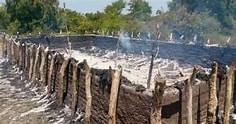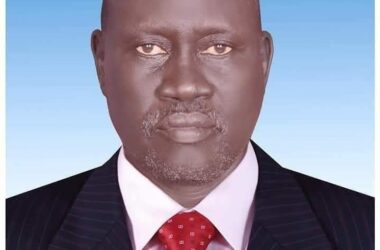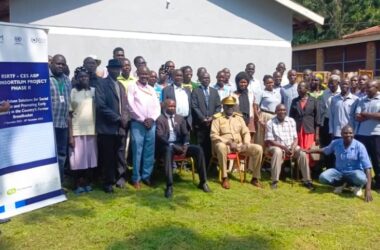Cash/Greenback scarcity & drift of inflation who should be blamed?
By Oyet Alfonse
Greenback and Inflation are two identical economic terms that are used in time of a serious scarcity or financial deficit or starvation in the country. This piece refers to pronouncement on the contemporary state of affairs.
The ongoing situation has been worrying everyone. It has mainly emerged from unprecedented rise in global oil prices and reluctant effect on the economics. Not only South Sudan but also developing economies and mostly underdeveloped African economics faces severe inflation challenges.
Greenback scarcity and Inflation alarm bells have started ringing in financial markets as soring energy as well as commodity prices conquered the globe and affects the growth. Many countries including South Sudan government is nervous about the economic meltdown couple with evaporation of the banknotes.
While the government scrambles to contain the deadly inflation despite peddling oil to some companies and later unloaded the money for up to 2027, yet all the money is used up at the onset of the suffering populations.
The escalating issue regarding the decision of the government to sell and use oil money in advance yet civil servants need to be paid, peace agreement to be implemented, and peace to be addressed and advocated at the grassroot level, seem a major headache to the country.
It is truly disappointing that the negligence of our higher public officials and the parliament become wasteful in the country’s political and economic setting, as they are unable to end corruption and mismanagement of country’s resources which would have alleviate the situation.
The aforementioned is more burdensome knowing how immense the effect would be on the future of the country. The issue of corruption has been communicated several times, but politicians in the system put deft ears.
Truly, South Sudan scandal started immediately following the independent; scandals has taken this long to get to this point but, of course, the poor families and survivors of the country know all about what is happening.
Cover-ups; and a lack of accountability; and the denial of justice covers off. It may take days, weeks, months or years to fully absorb the weighty impacts of scandals and inflations.
Vis-à-vis, Oil Deal without Bank Note
What happens when money runs out, salaries, and other government spending are unpaid? Government tends to borrow money from global bankers and international friends, and later use oil to pay the debt.
Some of these friends come and take the stuff and resources. Every year, the same friends collect millions of dollars from oil output and the poor population continues starving.
These pals are real monsters that haunt the nightmares of a consumer society and, because we always intrigued by those who are mysterious, you need to ask financial institutions such as Ministry of Finance and the Central Bank of South Sudan including Ministry of Petroleum; who are these friend that seize the biggest resources of South Sudan, you need to know and observe the vanities of these comrades.
What About Food Security?
Tens of thousands of South Sudanese are already severely hungry following successive and continuous shocks and could starve without food assistance.
Earlier, the UN’s World Food Programme (WFP) categorized South Sudan as one of the worst hunger crises globally, with 2.5 million people in emergency or worst levels of acute food insecurity, of which 108,000 people are estimated to already face famine-like conditions.
Considering the 4.7 million people in crisis levels, this is worst food security situation since the 2011 independence. Conflict is a main driver of food insecurity, and households’ purchasing power is further diminished by high inflation.
Recently, WFP warned that more than 70 percent of South Sudan’s population will struggle to survive the peak of the annual ‘lean season’ this year, as the country grapples with unprecedented levels of food insecurity caused by conflict, climate shocks, COVID-19, and rising costs of living, while global attention is focused on Ukraine.
In fact, people are living in extreme poverty, the actual situation worsened over the past years which was marked by insecurity, corruptions including recent natural disasters such as floods and drought. Food inflation has even affected aid efforts at a crucial time, as aid agencies anticipate the need for more handouts among internally displaced persons (IDPs), refugees and in the rural areas affected by cattle herders facing a leaner than normal year ahead.
Surely, deficient of banknotes and soaring prices of food items have more pronounced impact on domestic misery as the ability to meet the already shortfalls at affordable prices are being eroded by devoured oil money and persistent inflation.
Who should be blame for the scarcity of cash and drift of inflation that shakes the country?
Indisputably, you all know that the economy is not productive and the country continuously depends on imports. If the economy was productive, the country would be able to produce more supply and prices on food and non- food items would drop.
The only problem that South Sudanese face is the poor price and resources control; It mean that government should have to supervise prices that go up without any reason otherwise the failure always defines the reason of price increase.
Similarly, the government should introduce import and substitutions goods; these goods that are being imported are the goods that are produced cheaply coming at a cheaper price. Because there is no supply available nationally and the demand is high, we are always depending on imported goods and facilities, henceforth the poor who are living in extreme poverty, with the worsened situation over the past years marked by insecurity, corruptions including recent natural disasters such as floods and drought.
Therefore, National parliament and Council of States including local government needs to decide on the immediate actions to combat the possibilities of hunger in the region. If not, they are to be blame for slow move towards enacting legislations that might pave ways for the matriculation of the unified forces to remedy some constraints that faced the country.
The author is a media analyst, and can be found via oyetalfonse@gmail.com



